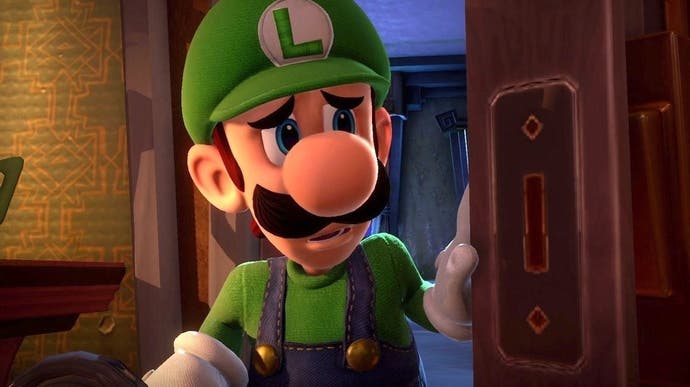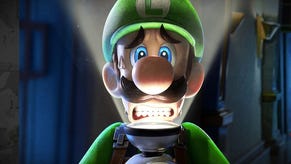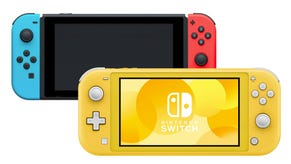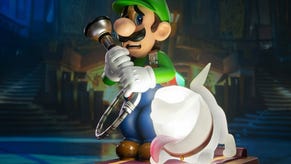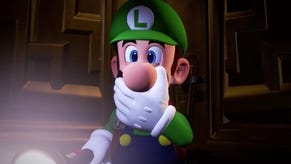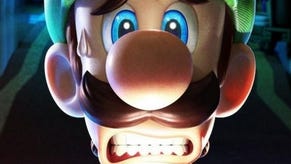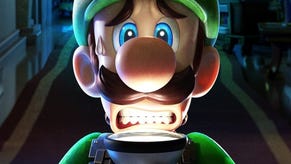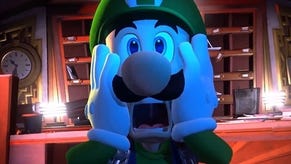Luigi's Mansion 3 review - a sometimes daring sequel, haunted by the past
Spiritual successor.
There's a moment around the mid-way point of Luigi's Mansion 3 where you open a door into a room that's not really a room and you think - wow. This absolutely sells the themed hotel setting of the game, but also sort of negates it completely. The room is, knowingly, I suspect, an actual sandbox: a vast puzzle-filled desert which stretches across the game's Ancient Egypt-themed floor - and it is brilliant. But why do mansions or hotels at all when you can do this?
Ever since our first glimpse at Luigi's Mansion 3 - the medieval castle level revealed at E3 - it's been clear this was going to push the series further from its traditional mansion format than ever before. I remember thinking, well, okay - we've had two quite traditional haunted house games already. It felt like the right time for Nintendo and developer Next Level Games to try something a little different - even if its themed hotel take on a medieval castle felt less like a themed hotel version and more like the real thing.
Just as Luigi's mansions are strange halfway houses for its ghostly residents, this third installment feels a mix of the series' more traditional formula mixed with an injection of the new. And while the game can ape the GameCube original well for a couple of floors - your trusty Poltergust vacuum slurping ghosts and money from every crevice - it's not until you start exploring some of its themed areas that the whole thing comes into its own.
The Ancient Egypt moment is followed by several others in a similar vein - and each time the elevator pings and its doors open onto a new floor you're left guessing as to what comes next. A Hollywood film studio with a ghost director ready to cast you in his new kaiju movie? Sure. A sewer level where Luigi has to do actual plumbing while operating a boat? Why not. These settings are when the game really shines - but also when it sort of gives up its hotel premise in the process.
The overall conceit still makes sense - what better way to link such thematically separate areas than as floors on a hotel elevator, used to quickly zip between them all? And yet it doesn't really play out as I'd expected. Luigi's Mansion 3 is a surprisingly linear game, and in the 15 hours it took for me to clear its story I was forced to backtrack only three times - for prescribed, and sometimes quite laboured, story reasons. I'd expected more of a Metroidvania-y experience, with rooms locked behind doors I'd have to return to later. But there are no new power ups, no new mechanics to learn after the early introduction of Gooigi. Each floor is served up as its own discrete course, then it's on to something different.
Gooigi, though - what a star he is. A blank-faced avatar for your co-op partner, or just a gelatinous double for when you need a second pair of hands. He's quietly terrifying - a living Haribo man, barely sentient, unable to move unless being controlled by someone else - and yet he is frequently part of the game's most testing puzzles. Yes, there are only a few new mechanics to learn past those available from the get go - but the game squeezes a lot out of those. Whether that's ghosts requiring a particular sequence of actions to render them vulnerable, or a puzzle which requires both the strength of Luigi and Gooigi combined to unlock, there are moments I sat marvelling (a little frustrated) at why everything I had tried had not yet worked.
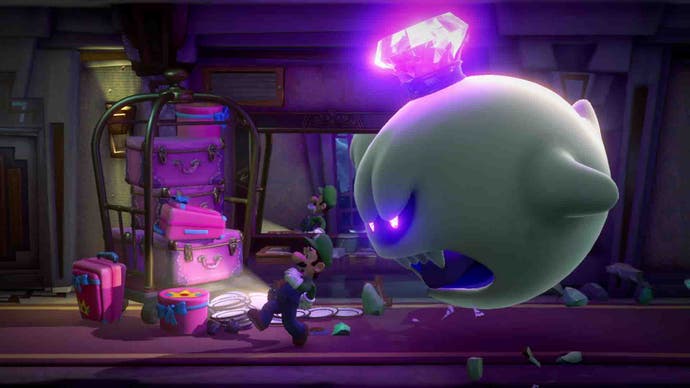
A brief note here about bugs - there are a few. One time I wasn't able to exit a room because it thought I was still stuck within an encounter, which made me suspicious of every locked door afterwards. Another time I saw a door stuck open, yet I was unable to enter until I restarted. And yes, of course, there are always bugs in video games, but this is a Nintendo game - and the last place you expect them to turn up is 10 minutes into the very final boss fight which features an unskippable cutscene beforehand. There are two things Nintendo needs to patch as soon as possible - not being able to skip pre-boss cutscenes, and the frankly obnoxious health alarm which blares discordantly at you whenever you dare drop slightly below half health. Nothing saps the enjoyment out of a set piece more than facing all of it with that noise drowning out everything else that's going on.
On a brighter note, Luigi's Mansion 3 has some brilliant bosses - a collection of real characters frequently introduced and teased throughout the floor they inhabit before your inevitable showdown with them several rooms later. You'll do battle on a pirate ship, amongst dabbing ghosts on a disco floor, against a dinosaur - and all this again makes the most out of the limited arsenal Luigi has on offer. He can vacuum, he can stun with his torch, investigate with a dark light, pull off a sucker shot, or do a ground pound. Just as in Luigi's Mansion 2, there are no elemental upgrades. One brilliant sequence where Luigi briefly buddies up with another character aside, Luigi must make do with what he has, and the set of duplicate abilities on offer from Gooigi.
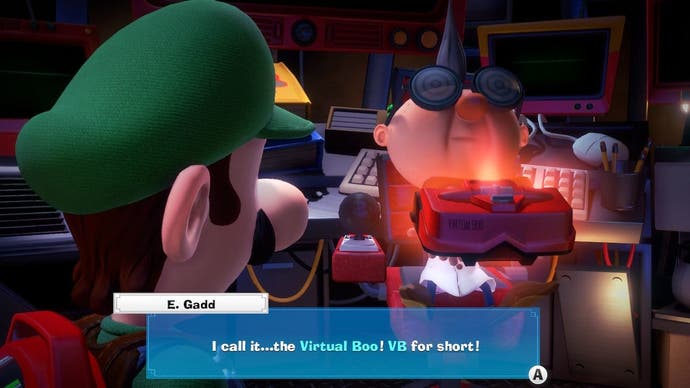
I often felt Luigi's Mansion 3 was at its best when not really a Luigi's Mansion game at all - when zipping between stores of a shopping mall, or flickering into the TV screens on movie sets where you can interact with actual CGI props (just leave logic at home and enjoy). Then there are the real panic-inducing sections where Luigi is put under pressure from environmental hazards - walls closing in, etc. - where you have seconds to solve a puzzle and quickly micromanage between him and Gooigi as the spikes bear down. It's brilliant. And while it isn't the old Luigi's Mansion, it keeps the same spirit.
When all's said and done you'll likely to still have lots to do. I finished having barely found any of the game's hidden Boo enemies - it's there that backtracking will come into play, although from the ones I have located, it's simply a matter of retracing your steps until your controller vibrates (you can pay to see their locations, but this then deducts currency from your final score). Likewise, the game's collectable gems, of which there are half a dozen on each level. I only netted around three-quarters during my playtime, having been as thorough as possible.
Part of me still yearns for those dusty carpets of the first Luigi's Mansion - the near pitch black corridors, the fumbling around in the dark. This third entry, by contrast, feels more like Luigi has left the haunted house and gained free reign around the neighbouring theme park. But what a theme park. It's left me excited to see where the series goes next.
